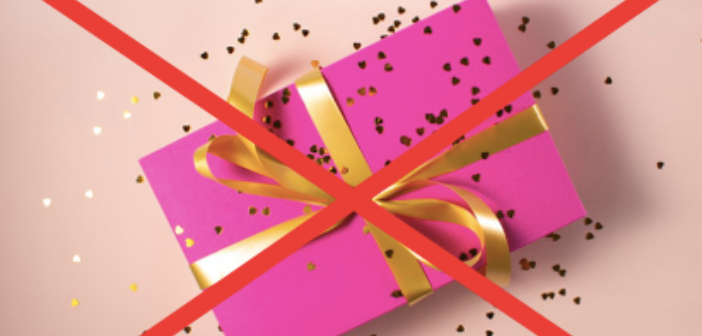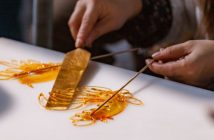Y’all had probably seen people visiting their loved ones in the hospital carrying a basket of fruits before. The basket probably has various fruits ranging from oranges to dragonfruits, but no pears are to be seen. What’s wrong with pears? They’re delicious! But, when it comes to gifting, China has certain boundaries that should never be crossed. Some items simply can’t be gifted according to ancient Chinese culture and tradition.

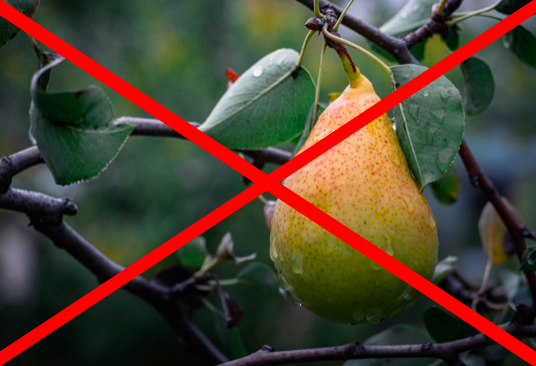
Here’s a quick guide to gifting no-no’s in China. Avoid these seven items!
These items are considered taboos in China for various reasons. Of the seven, four items are because their Chinese pronunciation is too similar of other words with opposing meanings and negative connotations as shown below in the graph – which pretty much explains why they don’t make a good present.
| Items/action | In Chinese character form |
Pronunciation | Character(s) with the same pronunciation | Meaning of the character(s) with the same pronunciation |
Gifting a Clock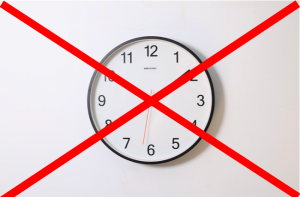 |
送钟 | Song zhong | 送终 | Sending someone to their end. |
Shoes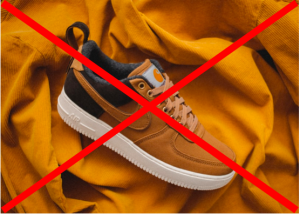 |
鞋 | Xie | 邪 | Evil (often associated with bad fortune) |
Umbrella |
伞 | San | 散 | Scatter, become loose, disperse |
Pear fruit 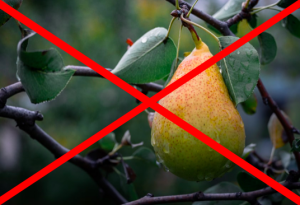 |
梨 | Li | 离 | Leave |
| Action | Implicit meaning |
| Gifting a clock | Sending someone to their death |
| Gifting a pair of shoes | Spreading bad luck, damning others to be misfortunate and evil. |
| Gifting an umbrella | Damning the receiver that their wealth and loved ones will all scatter. |
| Gifting a pear fruit | Telling the receiver that you will never meet again and will be separated for eternity. |
The other three items on the list carry second meanings. If you choose to gift them, the receiver may get the wrong idea.
| Item | Double meaning |
Fishtank 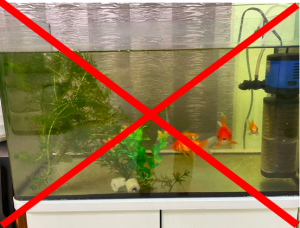 |
“水即是财,水能生财“ (“shuǐ jí shì cái , shuǐ néng shēng cái“). In China, water is associated with life and wealth, therefore, water and fishtanks resemble gaining wealth. |
Wallet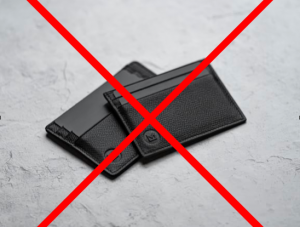 |
In ancient China, wallets were given as a love token. Because of this, many people associate wallets with love. |
Pillow 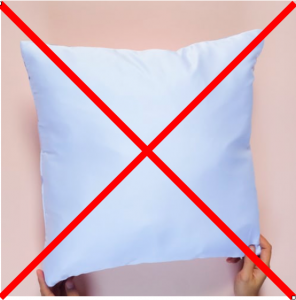 |
“同枕共眠“ (tóng zhěn gòng mián) Only people in a loving relationship will share the same pillow. At the same time, there’s the saying “高枕无忧“ (gāo zhěn wú yōu), the thicker your pillow, the smoother your emotions and life. |
| Action | Implicit meaning |
| Gifting a fish tank | Giving away portions of your wealth and lifespan. |
| Gifting a wallet | Asking the other to be your relationship partner, |
| Gifting a pillow | Asking the other to be your relationship partner, or sacrificing your comfortable life. |
Okay! We should now be familiar with what items should not be gifted in china, but what will happen if you did? Do these rules still apply in the modern era? Do people in Beijing still care about them?
To answer the questions presented above, I interviewed different people.
Were you given any of the seven items as a gift throughout your time in China?
William Triska (Art director at JPED Academy) says: “Yes! when I signed up for my MBA program, my university in China gifted me a really nice pillow.”
Have you given any of the seven items to someone else in China?
Nina Wang (College Counselor at JPED Academy) says: “I’ve given people wallets and shoes before, and I’ve never heard about most items on the list being perceived as “rude“. However, I do believe that gifting clocks and pears will be considered to be offensive by most Chinese people”

Traditional rules about gifts can be confusing, but to most people in Beijing, it’s not a big deal. Even though most people had forgotten about these traditions as time moves on, we should still think twice before giving out these items as presents. Fishtanks and pillows would probably be fine, but you should never gift people clocks and pears in China since most people are aware of the offensive message they hold.
Images: Unsplash, Dino Liu

